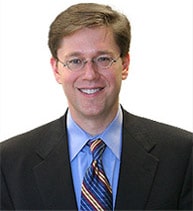Kevin Martin on A La Carte
 Last week FCC Chairman Kevin Martin penned a letter to various minority groups outlining his stance on A La Carte programming in the cable television industry. While the letter was not about satellite radio, the subject of A La Carte programming is a hot topic with the Chairman, and readers can easily insert this very letter into a possible stance on satellite radio’s proposed A La Carte offerings should the merger be approved.
Last week FCC Chairman Kevin Martin penned a letter to various minority groups outlining his stance on A La Carte programming in the cable television industry. While the letter was not about satellite radio, the subject of A La Carte programming is a hot topic with the Chairman, and readers can easily insert this very letter into a possible stance on satellite radio’s proposed A La Carte offerings should the merger be approved.
Martin opens his letter with the following:
“Thank you for the opportunity to communicate directly to you my views on the consumer benefits of A La Carte.
Some consumers, and I am one of them, enjoy a large number of channels. But not everyone does. An A La Carte regime would allow viewers to buy their television channels individually, in smaller packages, or in the large packages currently offered. I believe that these forms of channel choice could provide all consumers the ability to lower their cable bills and to have greater control over the programming that comes into their homes. It is worth noting that I am not alone in this opinion.”
Later in the letter Chairman Martin notes that a Center for Public Integrity study has concluded that the anti A La Carte message by “grass roots” organizations and legislators are actually being funded by big cable operators, using minority programming as a key issue.
The letter, and the many attachments to it are an interesting read, and translate to the satellite radio merger very well. In fairness, lobbying efforts regarding the Sirius and XM merger have been happening by both those for the merger and against. This merger has seen lobbying efforts with legislators, and has seen alleged “grass roots” organizations such as C3SR pop up out of nowhere with an opinion, only to find that they are financed by the NAB, and in the employ of people with close ties to the NAB. Other existing organizations have been approached by Sirius, XM, and the NAB, and many have proffered their respective opinions.
The question at hand is whether the proposed A La Carte programming offered by Sirius and XM will fill the need that Chairman Martin is seeking, and whether or not that will impact the merger decision. Once the anti-trust issue is resolved with the Department of Justice, the issue of license transfer and any concessions made by Sirius and XM will be in the FCC’s court.
In looking at Martin’s comments, and what Sirius and XM are proposing, it would seem that the satellite radio companies have indeed offered individualized channels, some smaller packages, some larger packages, and the existing packages currently offered. The spin by the national Association of Broadcasters on the per channel price with various components is very transparent, and while it may fool some consumers, it is not at all likely to fool Chairman Martin.
There is little doubt that the FCC has a lot on their plate, and various forces trying to influence their decision. The audio entertainment landscape has many moving parts, and items to consider. Realistically, the DOJ can relieve some of that pressure once they render their decision. The goal of the FCC is to see that the public interest is served, and to structure things such that a decision made today can sculpt the landscape of tomorrow.
MARTIN LETTER
Position – Long Sirius, Long XM




